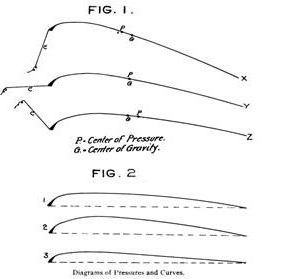Plus: The Wright Brothers In Chicago
“A Northwestern University professor has resigned her position at the Feinberg School of Medicine after, she said, her complaints of academic censorship were ignored,” the Tribune reports.
 Alice Dreger, who worked part time as a clinical medical humanities and bioethics professor, initially complained in 2014 that the school dean removed a risque article from a website for the bioethics journal Atrium because of fear it would harm the school’s image.
Alice Dreger, who worked part time as a clinical medical humanities and bioethics professor, initially complained in 2014 that the school dean removed a risque article from a website for the bioethics journal Atrium because of fear it would harm the school’s image.
“The university eventually allowed the essay, called ‘Head Nurses,’ to go back onto the website in May after Dreger said she threatened to take her complaints about school censorship public. But she objected to a newly established ‘oversight committee’ required to review and approve articles before they appear.”
Northwestern University, everybody.
That place sucks.
See also: FAQ On My Resignation Northwestern.
Wright Wing Chicago
“The [Wright Brothers] returned to Kitty Hawk the following year, 1901, and were discouraged by the results, as well as by a plague of mosquitoes,” James Salter writes for the New York Review of Books.
 “They had changed the camber of the wings in accordance with a shape that Lilienthal had concluded was optimal; but it turned out that their first glider had flown better. That fall, upstairs in the bicycle shop, they built a six-foot-long wind tunnel, powered by a gas engine since the shop had no electricity. They tested at various angles and wind speeds some thirty-eight wing shapes made from hacksaw blades in order to have reliable figures for lift and drag, both of which change in flight with changes in angle and speed.
“They had changed the camber of the wings in accordance with a shape that Lilienthal had concluded was optimal; but it turned out that their first glider had flown better. That fall, upstairs in the bicycle shop, they built a six-foot-long wind tunnel, powered by a gas engine since the shop had no electricity. They tested at various angles and wind speeds some thirty-eight wing shapes made from hacksaw blades in order to have reliable figures for lift and drag, both of which change in flight with changes in angle and speed.
“Equilibrium and control were a separate matter. Wilbur had explained it adroitly in a speech before a gathering of the Western Society of Engineers in Chicago. He had been invited to appear by Chanute and had reluctantly accepted. What was needed for a flying machine, he said, was balance and control in the air. He had taken a sheet of paper and holding it parallel to the floor let it drop. Its erratic fall, turning over and slipping one way and the other, he compared to an untrained horse that men had to learn to manage if they were to fly, and ‘if you really wish to learn, you must mount a machine and become acquainted with its tricks by actual trial.'”
Chanute was a Chicago engineer who had written Progress in Flying Machines.
Chicago Transportation Geek Alert
“The Society of Midland Authors presents its monthly meeting, focusing on transportation this time with three authors. Christopher Lynch, Neal Samors and Joseph Schwieterman discuss Chicago’s extraordinary role as a travel center based on their new books, Now Arriving (the story of air travel in the Windy City over the past 90 years) and Terminal Town (an illustrated guide to Chicago’s airports, bus depots and train stations). The presentation will include stunning images and memorable stories of great transportation landmarks, past and present . . . and the millions who used them.

“Christopher Lynch is has spent most of his life around Midway Airport, where his family ran Monarch Air Service, which serviced aircraft for more than 60 years. He has written two books on Midway Airport and is co-founder of the Midway Historians Club.
“Neal Samors is an award-winning author, co-author and/or publisher of 24 books about Chicago. His books have won three Independent Publisher Awards and several Illinois State Historical Society awards.
“Joseph Schwieterman is a professor at DePaul University and a nationally known authority on air, bus, and train travel. He has spent more than three decades studying the Chicago’s ever-changing transportation system.”
–
Comments welcome.
Posted on August 27, 2015


